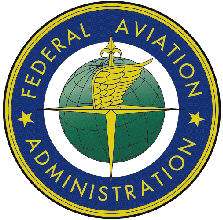And The Budget's Getting Tighter And Tighter
 Rising costs. Declining revenue.
Antiquated equipment. Outsourcing. Maintenance problems. No, we're
not talking about a financially troubled airline. We're talking
about the FAA.
Rising costs. Declining revenue.
Antiquated equipment. Outsourcing. Maintenance problems. No, we're
not talking about a financially troubled airline. We're talking
about the FAA.
The FAA issued a self-critique this week, saying that while the
number of aviation accidents had declined, it will have to cut
programs whose revenue is based on the Aviation Trust Fund. The
fund has lost a quarter of its value over the past four years. Yet,
the number of aircraft in the sky has increased. The number of
controllers has declined and is expected to drop sharply as the
current slate of employees reaches retirement age. There's no money
to replace them.
Computers are old and now IBM, which supplies them, says it
won't stock spares for those machines after 2008. There is no money
budgeted to replace them. Ironically, none of the computers in the
FAA's current inventory can run the agency's current software.
There have been huge, embarrassing computer glitches and reports
that at least 20 en route centers might be vulnerable
to hackers.
"I think things are coming together in a bad way," said DOT
Inspector General Kenneth Mead, in an interview with the New York
Times.
There Is A Bit Of Good News
 There's no question but that the FAA
is handling the increased traffic load. In fact, the agency said,
more and more, it's giving pilots direct routing to save fuel. The
number of GA accidents has declined, as has the number of
commercial mishaps.
There's no question but that the FAA
is handling the increased traffic load. In fact, the agency said,
more and more, it's giving pilots direct routing to save fuel. The
number of GA accidents has declined, as has the number of
commercial mishaps.
Not one cabin-class commercial passenger plane has gone down
since AAL 587 plunged into a New York neighborhood three years ago.
There have been two commuter mishaps over the past three years,
which have claimed 34 lives.
"This has been absolutely a banner year," said Blakey (above).
She said the rate of fatal accidents on airliners was now one in 5
million takeoffs.
But while the FAA predicted the Aviation Trust Fund would
receive $14 billion during FY 2005, it now projects income of only
$11.1 billion.
While income is down, the FAA -- like a lot of government
agencies -- is plagued with cost overruns. Take the STARS system,
for example. When it was originally conceived, STARS was supposed
to cost $949 million and use off-the-shelf equipment. But
developers packed it with custom features and add-ons and the cost
ballooned to $1.69 billion. With few alternatives, the FAA cut the
number of STARS facilities and lengthened the timeline for their
deployment.
The program became so cumbersome and out of control that Mead
told members of Congress not long ago "the benefits that supported
the initial acquisition are no longer valid."
The "R" Word
 After President Ronald Reagan fired
striking PATCO controllers, the FAA hired a bunch of young people,
many from the military. In doing so, the agency created an age
bubble, which, 24 years after the PATCO firings, is about to burst.
Some are reaching retirement eligibility. Others are creeping up on
56 years of age -- the mandatory retirement age for
controllers.
After President Ronald Reagan fired
striking PATCO controllers, the FAA hired a bunch of young people,
many from the military. In doing so, the agency created an age
bubble, which, 24 years after the PATCO firings, is about to burst.
Some are reaching retirement eligibility. Others are creeping up on
56 years of age -- the mandatory retirement age for
controllers.
ANN has often chronicled the consternation of unionized
controllers, aviation advocates and even FAA officials as they
search for answers to the age bubble. Few controllers were hired in
FY 2004. Administrator Marion Blakey says she'll try to find the
money for training more new controllers in FY '05. But the
intensive, painstaking training given to controller candidates
means there won't be a flood of new controllers anytime soon.
 ANN's Daily Aero-Term (04.26.24): DETRESFA (Distress Phrase)
ANN's Daily Aero-Term (04.26.24): DETRESFA (Distress Phrase) Aero-News: Quote of the Day (04.26.24)
Aero-News: Quote of the Day (04.26.24) ANN's Daily Aero-Term (04.27.24): Direct
ANN's Daily Aero-Term (04.27.24): Direct ANN's Daily Aero-Linx (04.27.24)
ANN's Daily Aero-Linx (04.27.24) Aero-News: Quote of the Day (04.27.24)
Aero-News: Quote of the Day (04.27.24)





